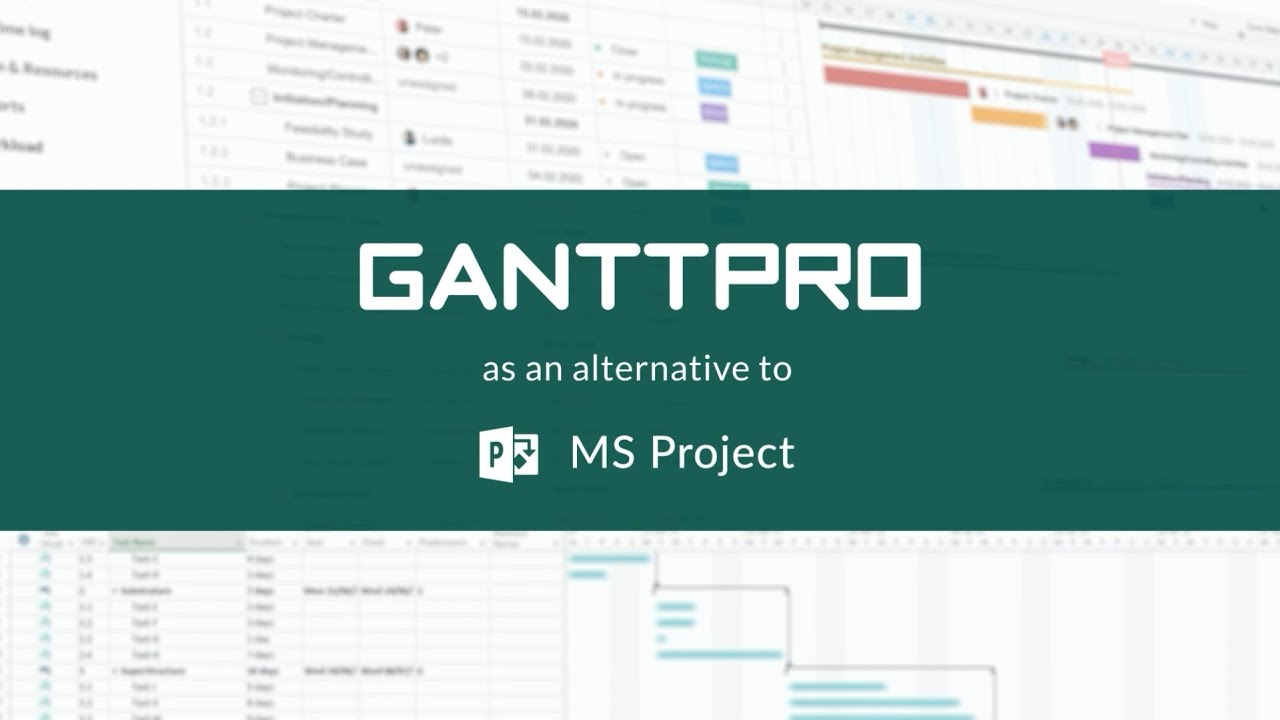20 Project Management Templates and Examples
Project management is a crucial aspect of any business or organization. It helps ensure that projects are completed on time, within budget, and to the satisfaction of stakeholders. One key tool in project management is the use of templates. These templates provide a starting point for project managers to create a customized plan for their specific project needs. In this article, we will explore 20 project management templates and examples.
1. Gantt Chart Templates
A Gantt chart is a bar graph-style representation of a project’s timeline. It is used to visualize the start and end dates of tasks, as well as their dependencies and milestones. Gantt charts can be created manually or using specialized software, such as GanttPRO, Microsoft Project, Wrike, ClickUp, Monday.com, Smartsheet, and more.
1.1 Simple Gantt Chart
A simple Gantt chart is a basic version of the chart that highlights the start and end dates of tasks and their dependencies. This type of chart is best suited for small projects with a limited number of tasks.
1.2 Detailed Gantt Chart
A detailed Gantt chart includes additional information such as task duration, resource allocation, and progress tracking. This type of chart is ideal for larger projects with multiple tasks and resources.
1.3 Collaborative Gantt Chart
A collaborative Gantt chart allows for real-time collaboration and communication among team members. This type of chart is particularly useful for remote teams or teams working on complex projects.
2. Work Breakdown Structure (WBS) Templates
A work breakdown structure (WBS) is a hierarchical representation of a project’s tasks and deliverables. It is used to organize and define the scope of a project. A WBS template provides a starting point for creating a customized WBS for a specific project.
2.1 Simple WBS
A simple WBS is a basic version of the structure that outlines the main tasks and deliverables of a project. This type of WBS is best suited for small projects with a limited number of tasks.
2.2 Detailed WBS
A detailed WBS includes additional information such as task duration, resource allocation, and progress tracking. This type of WBS is ideal for larger projects with multiple tasks and resources.
2.3 Collaborative WBS
A collaborative WBS allows for real-time collaboration and communication among team members. This type of WBS is particularly useful for remote teams or teams working on complex projects.
3. Resource Allocation Templates
Resource allocation refers to the process of assigning and managing resources (e.g. people, equipment, materials) for a project. Resource allocation templates provide a starting point for creating a customized resource allocation plan for a specific project.
3.1 Simple Resource Allocation
A simple resource allocation template outlines the main resources needed for a project and their allocation over time. This type of template is best suited for small projects with a limited number of resources.
3.2 Detailed Resource Allocation
A detailed resource allocation template includes additional information such as resource availability, resource utilization, and resource cost. This type of template is ideal for larger projects with multiple resources and resource constraints.
3.3 Collaborative Resource Allocation
A collaborative resource allocation template allows for real-time collaboration and communication among team members. This type of template is particularly useful for remote teams or teams working on complex projects.
4. Risk Management Templates
Risk management refers to the process of identifying, assessing, and mitigating risks associated with a project. Risk management templates provide a starting point for creating a customized risk management plan for a specific project.
4.1 Simple Risk Management
A simple risk management template outlines the main risks associated with a project and the steps tomitigate those risks. This type of template is best suited for small projects with a limited number of risks.
4.2 Detailed Risk Management
A detailed risk management template includes additional information such as risk likelihood, impact, and mitigation strategies. This type of template is ideal for larger projects with multiple risks and complex risk management requirements.
4.3 Collaborative Risk Management
A collaborative risk management template allows for real-time collaboration and communication among team members. This type of template is particularly useful for remote teams or teams working on complex projects.
5. Budget Management Templates
Budget management refers to the process of creating, tracking, and controlling a project’s budget. Budget management templates provide a starting point for creating a customized budget management plan for a specific project.
5.1 Simple Budget Management
A simple budget management template outlines the main budget items and their costs for a project. This type of template is best suited for small projects with a limited number of budget items.
5.2 Detailed Budget Management
A detailed budget management template includes additional information such as budget breakdowns, budget tracking, and budget performance analysis. This type of template is ideal for larger projects with multiple budget items and complex budget management requirements.
5.3 Collaborative Budget Management
A collaborative budget management template allows for real-time collaboration and communication among team members. This type of template is particularly useful for remote teams or teams working on complex projects.
These are just 20 of the many project management templates and examples available. By using templates, project managers can save time and effort in creating customized plans for their projects. In conclusion, project management templates are essential tools for successful project management and should be used whenever possible.

